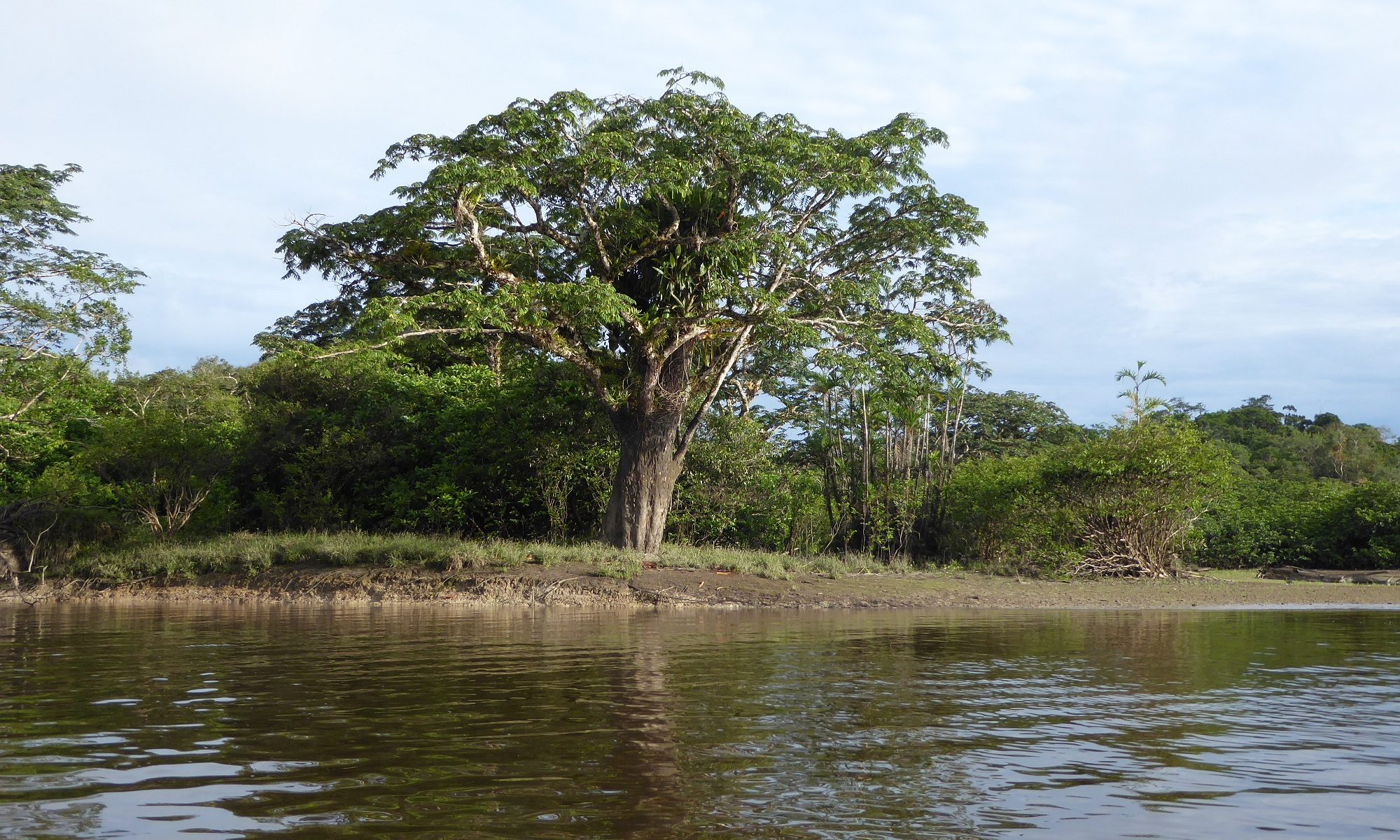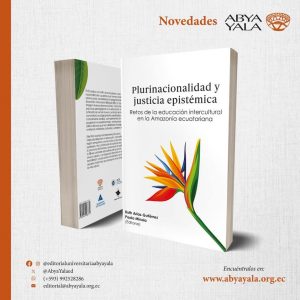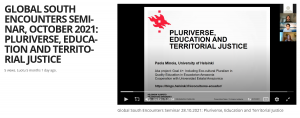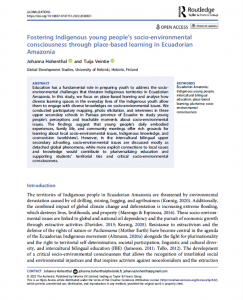Globalizations Volume 21, 2024 – Issue 2
A growing body of interdisciplinary scholarship underscores the imperative to explore and advance pluriversal education – an educational approach that embraces the diversity of ways of being, knowing, and acting, rooted in historical contexts and ecological interconnectedness. Central to this exploration is a pressing need to consider education as a means of promoting epistemic pluralism within spaces of settler colonialism. By contesting a Westernized geopolitics of knowledge, a pluriversal education advocates for the revalorization of subaltern knowledges, Indigenous cosmovisions, activism, and socio-environmental justice grounded in human, cultural, and land rights. The paper first debates fundamental divergences between the concept of pluriversal education, based on principles of decolonial interculturality, and the principles of global sustainable education announced by international mainstream institutions. Then, it refers to concrete experimentations of activism in pluriversal education in various locations illustrated by the contributions of the special issue.
Minoia, P., & Castro-Sotomayor, J. (2024). Education and socio-environmental justice in the pluriverse: decolonial perspectives. Globalizations, 21(2), 303–312.
El Masri, Y. (2024). Decolonizing education in Bourj Albarajenah: cosmologies of a Palestinian refugee camp. Globalizations, 21(2), 313–330.
Minoia, P., Tapia, A., & Kaukonen Lindholm, R. E. (2024). Epistemic territories of kawsak sacha (living forest): cosmopolitics and cosmoeducation. Globalizations, 21(2), 331–348.
Hohenthal, J., & Veintie, T. (2024). Fostering Indigenous young people’s socio-environmental consciousness through place-based learning in Ecuadorian Amazonia. Globalizations, 21(2), 349–369.
Korsant, C. (2024). A Freirean ecopedagogy or an imposition of values? The pluriverse and the politics of environmental education. Globalizations, 21(2), 370–387.
Audley, S., & D’Souza, A. B. (2024). Creating third spaces in K-12 socio-environmental education through indigenous languages: a case study. Globalizations, 21(2), 388–403.
Durazzo, L. (2024). A cosmopolitical education: Indigenous language revitalization among Tuxá people from Bahia, Brazil. Globalizations, 21(2), 404–420.
Cadaval Narezo, M., Méndez Torres, G., Hernández Vásquez, A., & Castro-Sotomayor, J. (2023). Contributions to the pluriverse from indigenous women professors of intercultural universities. Globalizations, 20(7), 1144–1162.



 Un nuevo artículo de acceso abierto por Johanna Hohenthal y Tuija Veintie (y el equipo de investigación) se publica en la revista Globalizations.
Un nuevo artículo de acceso abierto por Johanna Hohenthal y Tuija Veintie (y el equipo de investigación) se publica en la revista Globalizations.